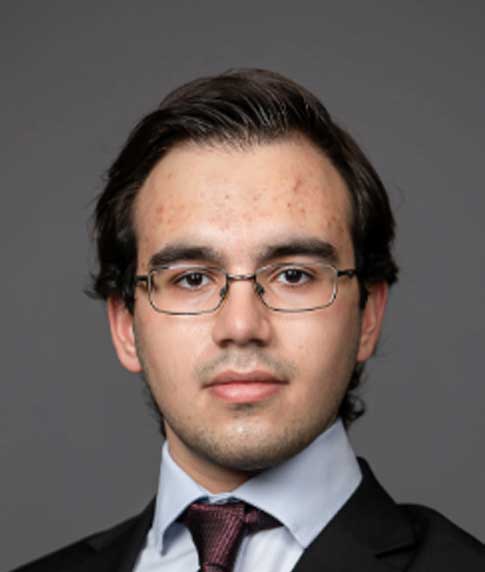TUNA ERGAN
Graduate Researcher in the Aerospace Systems Design Laboratory at Georgia Tech, focused on sustainable aviation and electrified propulsion. Holds a B.S. in Aerospace Engineering with Highest Honors and a Minor in Physics.

Tuna Ergan graduated with Highest Honors in 2023 from Georgia Tech with a Bachelor of Science in Aerospace Engineering and a Minor in Physics (Stellar Astrophysics). As an undergrad, he completed the International Plan with Language Proficiency in Russian. He also speaks his native Turkish and English, along with intermediate German.
Tuna was both a Defne Muhtar Kent and Campoamor Scholarship Recipient. He participated in Model United Nations, Turkish Student Organization, and the Design-Build-Fly club, along with his executive roles in the Aerospace Honor Society Sigma Gamma Tau and Omicron Delta Kappa Honor Society.
Off-campus, Tuna combines his passion for aerospace and photography by photographing airshows. He is also a long-time member of the Experimental Aircraft Association.
Gabrielle Calderon, Archon of Georgia Tech’s Gamma Tau chapter in 2023, says,
“Tuna has been a driving force in moving our chapter toward a better culture.”
That year, he served as Risk Management, a position where he successfully implemented steps to make events safer. He is said to have encouraged frank conversations among the brotherhood about how to keep everyone feeling comfortable while maintaining accountability and responsible behavior. Tuna is known for leading unbiased discussions about sensitive chapter issues and has contributed significantly to their proper handling. He also workshopped the Chapter’s Judicial Board procedure to allow for some important considerations that had previously been overlooked.
Tuna works to improve classical systems and system-of-systems in aerospace engineering using the innovative methodologies developed at the Aerospace Systems Design Laboratory, where he has been a graduate researcher since August 2023 and an undergraduate research assistant since August 2020. During this time, his research has been focused on Electrified Aircraft Propulsion, Hydrogen Propelled Aircraft Design, Computational Fluid Dynamics, and virtual experiment modeling-calibration.
Tuna’s graduate research projects to date include:
- Federal Aviation Administration’s ASCENT A64
- System of Systems Engineering for Accessible and Inclusive Air Travel for AIRBUS
- Air Force Research Laboratory at Lockheed Martin
along with soon-to-be-published papers. Tuna currently holds a perfect 4.0 GPA in his graduate education and has already indicated interest in remaining for his PhD, which the director of the lab has welcomed.
Jiacheng Xie, Ph.D., a doctor at Georgia Tech’s Aerospace Systems Design Laboratory, interviewed Tuna for the Federal Aviation Administration’s ASCENT A64 project in August 2023 and went on to become his graduate supervisor. Dr. Xie says Tuna’s passion for advancing future sustainable aviation was immediately evident, and that Tuna has become a huge asset, often taking on leadership roles and demonstrating proficiency far beyond his counterparts. Tuna’s research findings on this project have provided valuable insights that are being used to mitigate the environmental impacts of aviation activities.
Dimitri N. Mavris, Ph.D. is Regents Professor, Boeing Professor of Advanced Aerospace Systems Analysis, S.P. Langley Distinguished Professor, and Director of the Daniel Guggenheim School of Aerospace Engineering at Georgia Tech’s Aerospace Systems Design Laboratory. He has known and mentored Tuna since 2020 and speaks highly of his academic prowess and strong leadership qualities.
Dr. Mavris describes Tuna as:
“A highly motivated and ambitious individual rising to the challenge of taking leadership positions at numerous opportunities and leaving his mark on the aerospace engineering program of the Georgia Institute of Technology.”
He goes on to say that Tuna’s excellence extends beyond technical proficiency to exceptional communication, teamwork, and presentation skills that have been critical in delivering his team’s progress and results in an effective and engaging manner.
“Tuna consistently demonstrates the ability to articulate complex ideas with clarity and precision, an invaluable role when it comes to the success of an academic and professional team.”
